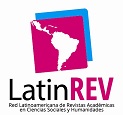Argentina: del “mejor alumno” en la década de los ´90, al país más demandado desde el colapso de la Convertibilidad
Keywords:
Washington, investment, BITs, ICSIDAbstract
Following the debt crisis and the hyperinflations, Argentina implemented a State reform and adopted a convertibility regime that would last for more than ten years. Under the principles of the Washington Consensus, Argentina promoted foreign investments and was the country in the region that signed the largest number of Bilateral Investment Treaties (BITs). Contrary to the predictions of traditional economic theory and the recommendations of international financial organisations, the stability and growth attained in the early 1990s did not create employment or reduce poverty. Although Argentina adopted all the measures recommended to administer the profound recession triggered by a series of external shocks, the collapse of convertibility was inevitable. Amidst one of the worst crises of the world’s economic history, and while the country was going through a state of public emergency, Argentina received a deluge of claims from foreign investors due to alleged BIT violations. From being the “best student,” Argentina went on to become the most heavily litigated country in the world, and thus became a leading case that contributed to the creation of a “new” international investment law.
Downloads
Published
How to Cite
Issue
Section
License
Copyright (c) 2022 Adriana CusmanoAtribución — Usted debe dar crédito de manera adecuada, brindar un enlace a la licencia, e indicar si se han realizado cambios. Puede hacerlo en cualquier forma razonable, pero no de forma tal que sugiera que usted o su uso tienen el apoyo de la licenciante.
NoComercial — Usted no puede hacer uso del material con propósitos comerciales.
SinDerivadas — Si remezcla, transforma o crea a partir del material, no podrá distribuir el material modificado.
No hay restricciones adicionales — No puede aplicar términos legales ni medidas tecnológicas que restrinjan legalmente a otras a hacer cualquier uso permitido por la licencia.










